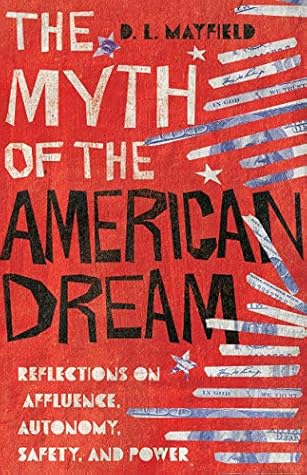More on this book
Community
Kindle Notes & Highlights
Read between
May 16 - July 5, 2020
Our belief in individualism (especially free-will individualism, where each person is accountable to God for their own choices) can lead to the denial, dismissal, or erasure of larger problems or one’s responsibility to them.
when people of privilege pursue affluence, autonomy, safety, and power above everything else, not only do they miss out on the liberating and restorative work of Jesus, but they participate in greater inequality, segregation, and suffering for the most marginalized people in their community. When people of means pursue what is best for them and their own in an unequal society, their actions inevitably harm the common good.
The myth of the American Dream not only baptizes the actions and desires of the privileged but also places the blame of inequality on those who are already disadvantaged, instead of turning the focus on changing the unjust systems.
The more I try to follow Jesus, the more I realize that if the gospel isn’t good news for the poor, the imprisoned, the brokenhearted, and the oppressed, then it isn’t good news for me either.
Affluence has shaped my life and therefore my imagination.
Jesus is the lens through which we all must view our lives in the midst of empire.
God’s ideal economy banks on the idea that you shall know your neighbor who is suffering and that you shall be compelled to do something about it.
Catholic theologian William T. Cavanaugh posits that the disembodied vice of greed is not so much what ails our society as it is an economic system based on detaching people both from production and consumption, leading to some pretty un-Christian modes of living. He says that no person really wants to impoverish a single mother in Latin America in order to buy cheap clothes—we are simply too detached from the process to be bothered by the unjust realities that we engage in.
What would good news for my lower-income neighbors feel like for me? Would it, just possibly, feel a bit like bad news to me in the beginning, if I wasn’t used to a truly equitable world?
In the book The Color of Wealth, the authors state that “income can change on a dime, but wealth changes across generations.” They go on to write that “an estimated 80 percent of assets come from transfers from prior generations.”
The deep and dark tragedy of affluence is how it takes away curiosity, how it accepts the world as it is, how it conforms to the talking points of empire and Pharaohs.
The Mennonites taught me to see different nuances in the text, how it shows a God who gives the chosen people decades of practicing what it looks like to value equality, to live in true righteousness/justice. Manna, bread given new every morning, was sent with strict instructions: no hoarding was allowed, no one was allowed to stockpile, to sell, to incur debts against their neighbors. If people tried to set up a black-market manna system, they awoke to see their stockpiles stinking and melted, covered with maggots. Those years in the wilderness with that sweet, ethereal bread was a forty-year
...more
We used a curriculum called Lazarus at the Gate, which was put together by several scholars, theologians, and Christian ethicists.
when well-meaning, well-intentioned privileged people hear only the financial success stories, they are being discipled in how to judge and belittle all of those who fail in the landscape of the American Dream.
The antidote to affluence is not shame. It is, instead, thanksgiving.
What exactly does it mean to love a neighborhood, to adopt it, to help it, to fix it, when you wouldn’t actually ever move into it?
Someone’s kids have to attend the worst school in your city. In your mind whose kids should that be? I think our answers to that question reveal a great deal about how deeply the American value of autonomy has been lodged in our hearts.
Prayer consists of paying attention. SIMONE WEIL
When people of privilege choose to value their own safety over the common good, it is the most vulnerable in the community who will suffer,
There is no way we can move forward in welcoming the stranger in the United States if we don’t assess the situation honestly: our morality has slipped to the point where we do not care that people will suffer and die due to our own desire for safety. In fact, according to polls put out by Pew Research, White evangelicals were the least likely group to identify a moral need to resettle refugees (with only 25 percent saying we should).
Empires are complicated structures; no matter where we live on this earth, we live with some sort of relationship to empire—and we need to figure out how to live as disciples of Christ right where we are.
Proximity plus toxic narratives and unequal power lead to more oppression.
Proximity only changes us if we enter into other peoples’ suffering. Only when we allow ourselves to experience the bad news of their world, without rushing to explain it away. Only when we take on the suffering of other people to the point that we will do whatever we can to make it right, even if it includes losing some of our own money, rights, safety, and power.
Walter Brueggemann writes that “poets have no advice to give people. They only want people to see differently, to re-vision life. They are not coercive. They only try to stimulate, hint, give nuance, not more. They cannot do more, because they are making available a world that does not yet exist beyond their imagination.”


